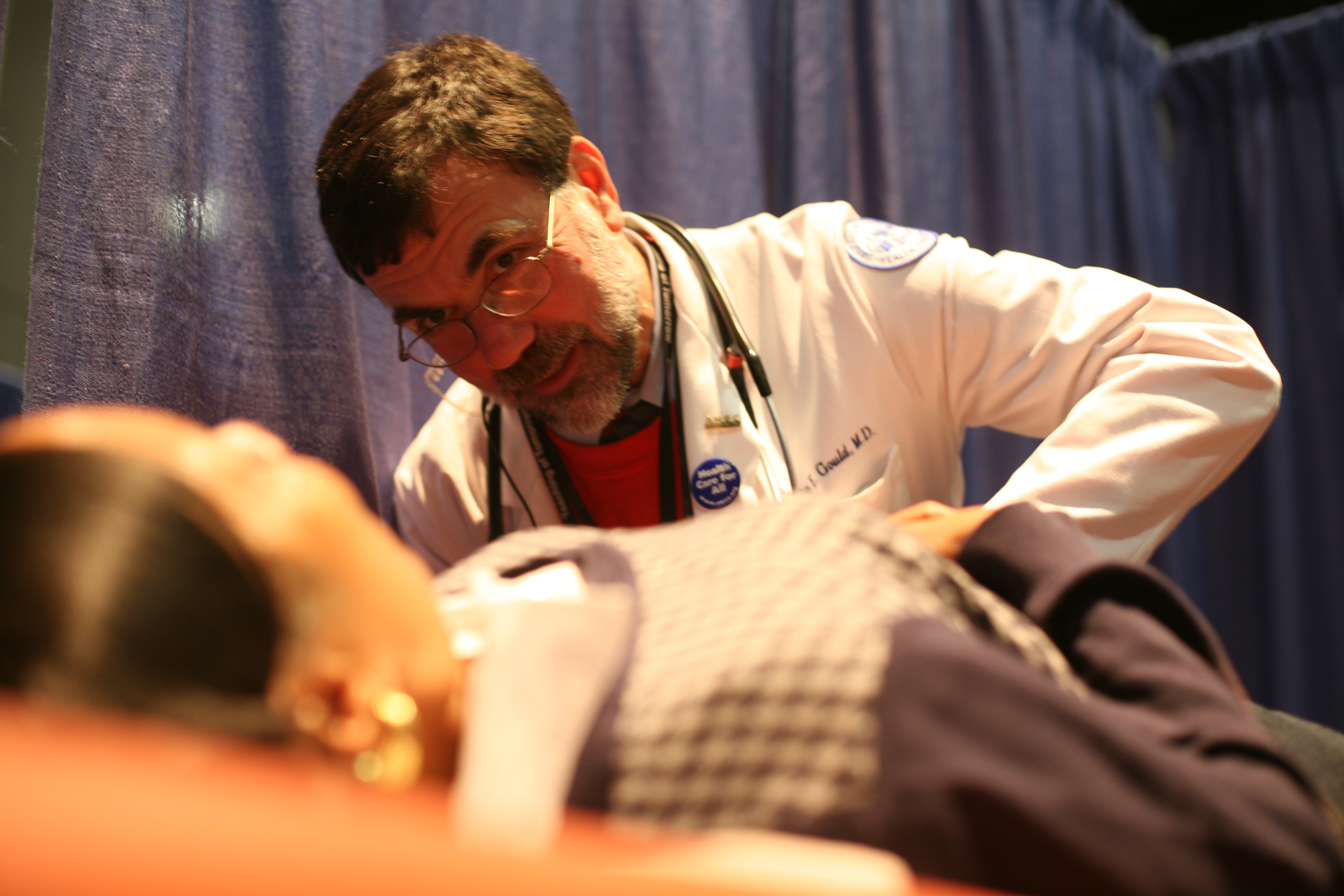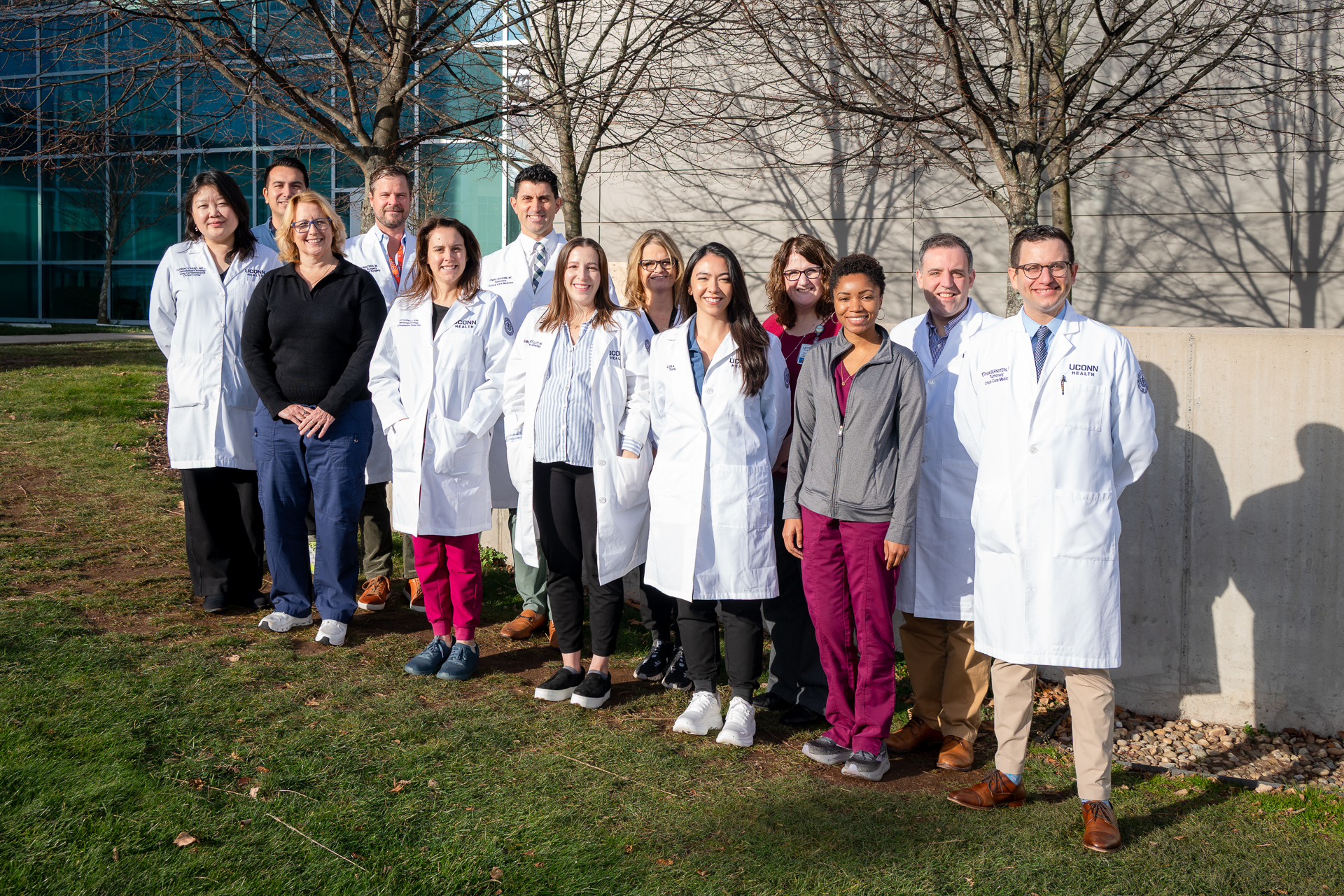UConn Health’s Dr. Bruce Gould has been appointed medical director of the Transforming Clinical Practices Initiative (TCPI) of The Community Health Center Association of Connecticut, Inc. (CHCACT). His appointment is effective April 15.
Gould will continue to serve as professor and associate dean for primary care at the UConn School of Medicine and director of its Connecticut Area Health Education Center (AHEC) Program. He will also continue to serve as the medical director for the Hartford Department of Health and Human Services and the principal investigator of the Community Health Worker Initiative of the State Innovation Model (SIM).

However, after 28 years, Gould will be stepping down from his role as medical director of the Saint Francis/University of Connecticut Primary Care Center at the Burgdorf Health Center, a health center serving an underserved population in the north end of Hartford since 1970.
“The Burgdorf Health Center, its staff and patients have been my medical home and my passion for nearly three decades,” says Gould. “But in my new CHCACT role I can use the experience and knowledge I’ve gained over a lifetime of working with the underserved to assist community health centers across the state to provide more effective and efficient health care.”
Gould adds: “These are exciting times of rapid transformation in health care delivery across the country with systems transitioning from fee for service, illness based care to more global approaches to population health and prevention that promise better health, and patient health care experience at a more affordable cost for our nation. It is forcing clinicians to expand their focus beyond the walls of the clinic into the homes and neighborhoods where our patients live.”
“We congratulate Dr. Gould on his new appointment and thank him for his many years of dedicated service to the UConn Health community, especially his patients in Hartford at the Burgdorf Health Center for the last three decades,” says Dr. Bruce T. Liang, dean, UConn School of Medicine. “We are happy Dr. Gould is a member of our team and is now beginning to share his knowledge and expertise across Connecticut with CHCACT for an even greater impact.”
“We look forward to continued collaboration with Dr. Gould and success pushing forward greater quality health care improvement initiatives for enhancing the patient experience and preparing physicians for practicing in the new era of value-based health care delivery,” says Dr. Andrew Agwunobi, CEO and executive vice president for health affairs at UConn Health.
In his new role, Gould will provide direction, medical expertise, and innovation to CHCACT’s network of 15 federally-qualified health centers (FQHCs) across Connecticut and its new statewide CT Practice Transformation Network (CT-PTN), one of the 29 Practice Transformation Networks (PTNs) and 10 Supporting and Alignment Networks (SANs) funded by the Center for Medicare and Medicaid Innovation (CMMI) in September 2015.
CT-PTN will receive up to $17.25 million over four years to provide technical assistance support to help equip clinicians at federally-qualified health centers in Connecticut with tools, information, and network support needed to improve quality of care, increase patient access to information, and spend health care dollars more wisely.
“For this critical new role we were searching for a leading expert who best understood the health care landscape in Connecticut and we found that in Dr. Gould and his career experience,” says Mollie Melbourne, chief operating officer and acting CEO, Community Health Center Association of Connecticut, Inc. “We have a longstanding working relationship with Dr. Gould and UConn Health. We look forward to expanding upon it to together improve the quality of health care across Connecticut and help health centers do the great work they do even better.”
PTNs were established by CMMI to help educate and guide clinical practitioners in meeting rapid changes in health care delivery, preparing them for the coming move from fee-for-service to value-based health care payments linked to quality and reduced costs.
CT-PTN, supporting 1,500 clinicians and clinical staff, plans to enhance team-based care delivery, integration of specialty/behavioral health with primary care, resource coordination and population health through training, technical assistance, data sharing and collaborative learning, and focus on improving health outcomes for three conditions common to health center patients: asthma, diabetes and hypertension. Overall, CHCACT expects this investment to improve the health of FQHC patients while saving over $38 million in the health care system.
“All of us as clinicians are dedicated to our patients and their well-being. The PTN will give us the tools, knowledge and assistance to strive to optimize health for all our patients and the communities in which they live,” says Gould.
CHCACT is a not for profit organization committed to primary health care access for all Connecticut residents and to improving the quality of primary care services provided by the State’s network of FQHCs. Connecticut’s FQHCs serve 348,000 patients annually – one out of every ten residents.
Learn more about CHCACT at: www.chcact.org.



